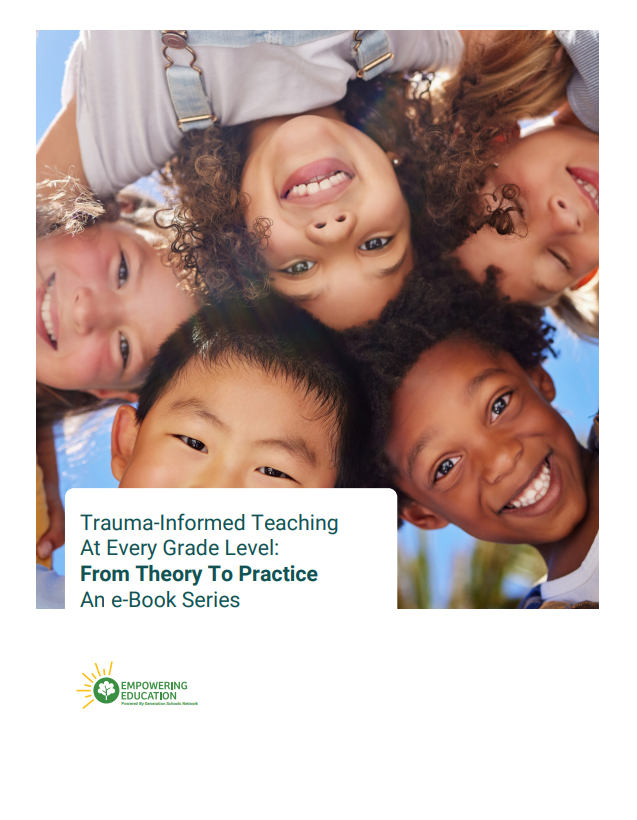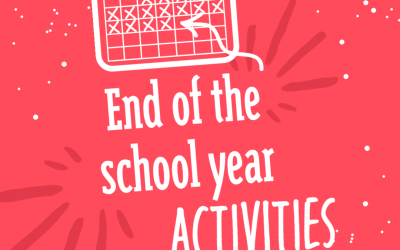The term “self-care” has gained much traction in recent years, but what does it mean for children? Self-care for kids helps children reduce stress, improve relationships, and promote wellness in their bodies and minds.
The Popularity for Self-Care for Kids and Adults
Self-care is popular for good reason: it does wonders for a higher quality of life. There are countless forms of self-care, all of which can improve your overall health and wellbeing. The best part? It’s not just for adults.
Self-care can help children of all ages become more aware of their physical and emotional needs while also equipping them with healthy ways to deal with everyday stress. Here are 6 easy ways that parents or educators can teach self-care to little ones.
1. Check Your Own Self-Care Routine
The best thing you can do to help children develop a healthy sense of self-care is to show them a good example. As your child’s most influential role model, parents or teachers will lead them in either good or bad habits. So it’s important to instill respect for health and safety, which includes taking care of your own self! This lesson can carry over into other aspects of their lives and benefit them for years to come.
Creating a self-care routine helps you manage stress and improve your overall health. For example: stick to a healthy diet, exercise regularly, get adequate sleep, and find stress-reducing activities that you can do each day. Also, do what you can to transform your own home into an oasis of wellness, free from negativity and criticism, so that you can show up more fully for children when they need you.

2. Encourage a Skill that Requires Practice as a Form of Self-Care
Almost anything worth doing requires practice in order to learn how to do it well. Parents might consider introducing the lesson of practice through music. If your child plays an instrument, for instance, help them get into a good practice rhythm. The mental and emotional benefits of music are endless, and the more skilled your child becomes at their instrument, the more motivated they will be to keep playing.
Teachers can offer the same lesson by establishing a consistent routine for traditional academics and Social-Emotional Learning time.
3. Celebrate Your Child’s Progress in Caring for Themselves
Another way to support your child’s self-care routine is to celebrate with them when they achieve goals and milestones. For example, if your child finishes their homework each day for a whole month, perhaps you could take them for ice cream. If each student keeps their desk tidy for a whole month, perhaps they get to enjoy reading time outside.
By reinforcing kids’ commitment to healthy habits with things they enjoy, you make it more likely that they will continue.
4. Embrace Outdoor Activities
Both kids and adults spend a lot of time on electronic devices these days. For this reason, people of all ages have what’s known as a nature-deficit disorder, or NDD. Richard Louv describes NDD in his book Last Child in the Woods: Saving Our Children from Nature-Deficit Disorder, as what happens to those who don’t spend enough time in nature to enjoy its benefits. It’s important to note that while NDD isn’t a medical condition, lack of exposure to nature has been shown to lead to issues such as attention deficits, reduced use of the senses, and even obesity. Want more proof? Here are 50 ways nature can help a child develop.
To help kids (and yourself) battle nature-deficit disorder, make a point of spending time with them outdoors. There are plenty of fun activities to engage in that will keep your child active and entertained outdoors. Develop an outdoor play area, go bird watching, take a nature hike, have a picnic in the park, or even turn your backyard into a campsite!
5. Buy Kids a Self-Care Journal
Journaling is proven to yield a slew of cognitive and emotional benefits for people of all ages. Depending on the age and stage of kiddos, providing a journal could be an excellent investment.
When children are unsure how to start writing in their journal, you can give them topics to write about. Encourage them to write about everyday experiences and express their thoughts and emotions on things that are important to them.
6. Spend One-On-One Time
Lastly, make sure you invest in children by spending quality time with them. This will look different for teachers and parents. For teachers, it may be enough connection to set up learning groups for 3-4 students. Perhaps your school district provides you with access to a paraprofessional that could help facilitate one-on-one time. Building a close relationship with students individually will allow you to build the trust you need to talk about self-care.
For busy parents of large families, one-on-one time can be difficult. While family time is critical, doing things just the two of you is an excellent way to show your child how much you value your relationship. It also gives you a unique opportunity to connect on a deeper level. Here are a few activities to consider doing with your child:
- Go for a lunch or dinner date.
- Play miniature golf.
- Attend a sports event.
- Take them to see their favorite musical artist.
- Go to a movie or play.
- Plan a fishing trip.
Conclusion
If you want children to become more introspective and learn how to cope with everyday stress, teaching them to practice self-care is a great way to do it. Remember to be the best role model you can be and encourage kids to practice their craft consistently.
When a child meets their goals or milestones, celebrate with them. Lastly, ensure that children get plenty of time outdoors, encourage them to write in a journal, and prioritize time with just the two of you.
Empowering Education enables learning through a curriculum that furthers the social & emotional wellness of students, families, and educators. If you have any questions, please email info@empoweringeducation.org.






